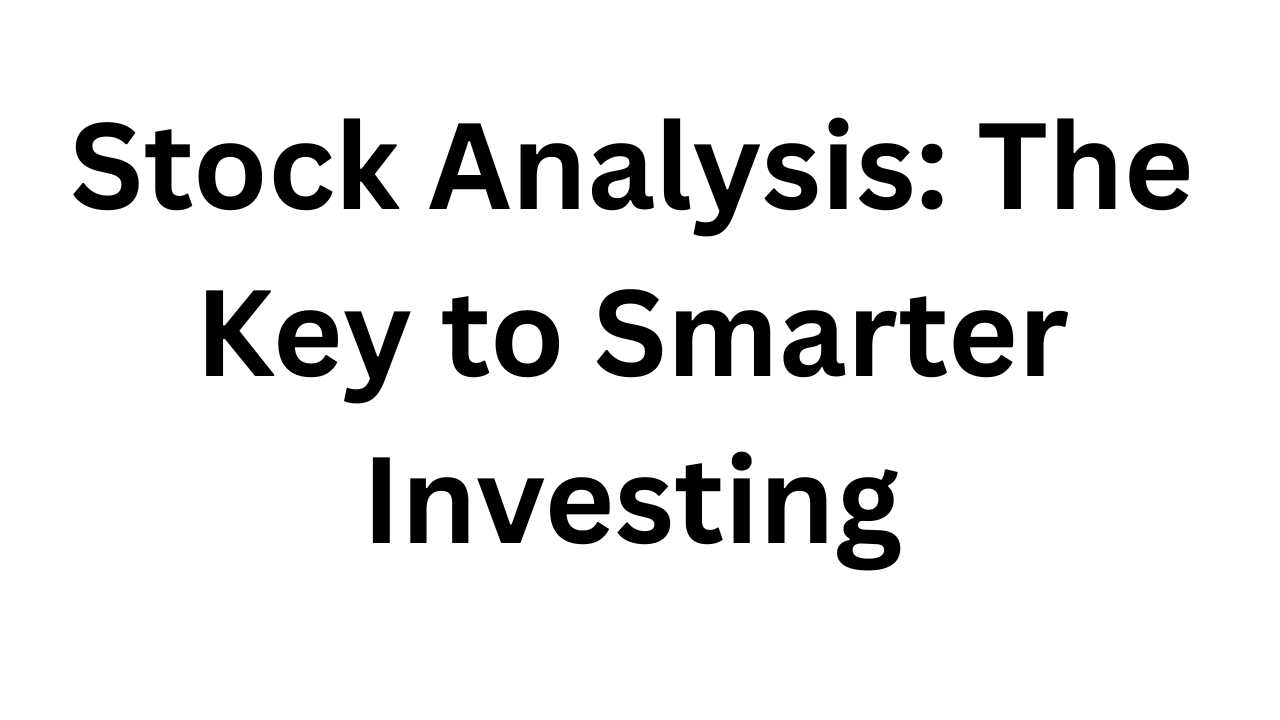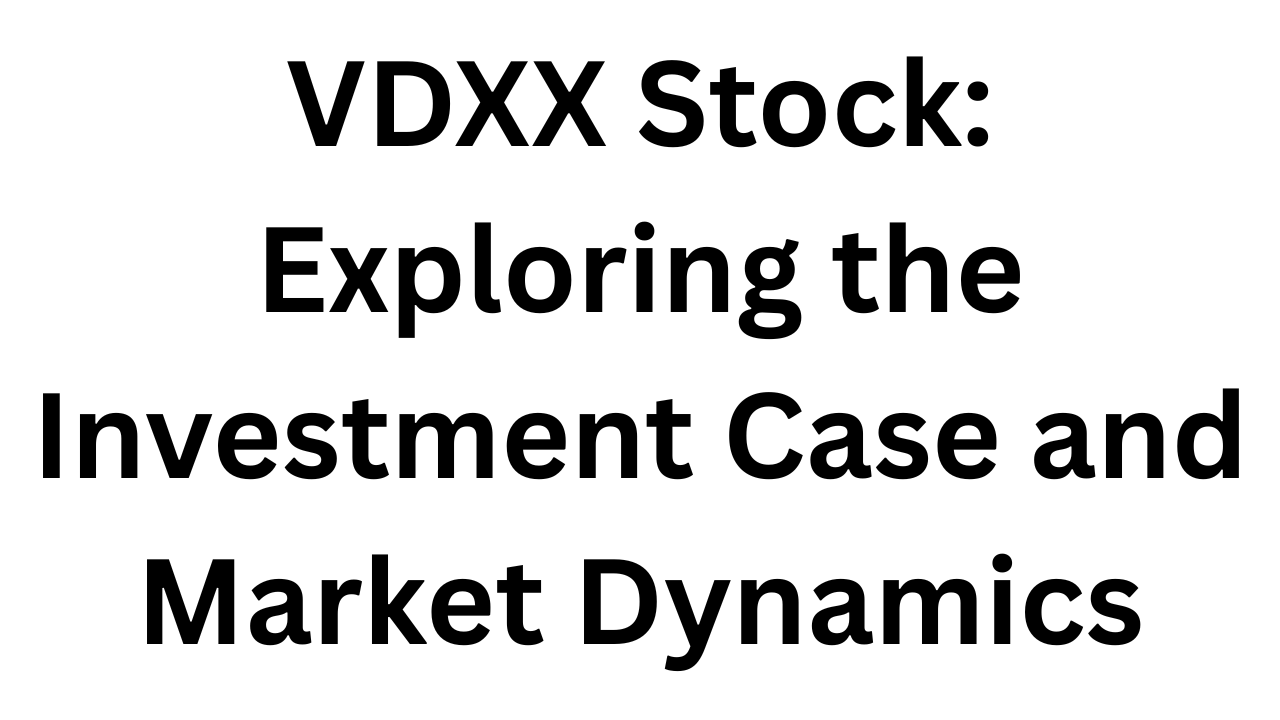Stock Analysis: The Key to Smarter Investing

Strong 8k brings an ultra-HD IPTV experience to your living room and your pocket.
Investing in the stock market can be both exciting and overwhelming. With thousands of companies listed on global exchanges, how do investors choose the right stocks? The answer lies in stock analysis the process of evaluating a company's financial performance, market behavior, and future potential to make informed investment decisions.
In 2025, stock analysis has evolved significantly with the help of technology, big data, and artificial intelligence. But the core principles remain the same: understand what you're investing in, and why.
What Is Stock Analysis?
Stock analysis refers to the methods used to assess a stock’s potential for profitability. This analysis helps investors decide whether a stock is overvalued, undervalued, or fairly priced, and whether it's worth buying, holding, or selling.
Stock analysis typically involves studying:
Company financials (like revenue, profit, and debt)
Industry and market trends
Historical price movements
News, sentiment, and macroeconomic factors
There are two primary types of stock analysis: fundamental analysis and technical analysis.
Fundamental Analysis
Fundamental analysis is focused on the financial health and intrinsic value of a company. It examines both qualitative and quantitative aspects, such as:
Earnings per share (EPS)
Price-to-earnings (P/E) ratio
Revenue growth
Debt-to-equity ratio
Competitive advantage
Industry position
Investors use this data to determine a stock’s "true value" and compare it to the current market price. If a stock is trading below its intrinsic value, it may be a good buying opportunity.
Example:
An investor analyzing Apple might study its iPhone sales, cash reserves, and innovation pipeline to decide whether it will continue to grow over the next few years.
Technical Analysis
Technical analysis focuses on the price movements and trading volumes of a stock. It assumes that all known information is already reflected in the stock price and tries to predict future movements using patterns and indicators.
Common tools include:
Moving averages
Relative strength index (RSI)
MACD (Moving Average Convergence Divergence)
Candlestick patterns
Support and resistance levels
Technical analysts use these tools to decide the best times to enter or exit trades, especially useful for short-term traders.
Example:
A trader might use RSI to identify whether a stock is overbought or oversold, helping them time their trade.
AI and Modern Tools in Stock Analysis
In 2025, many investors will rely on advanced stock analysis platforms powered by artificial intelligence and big data. These tools automate complex calculations, scan thousands of stocks instantly, and even interpret sentiment from social media or news headlines.
Popular tools include:
TradingView – advanced charting and community ideas
Finviz – stock screening based on financials and technicals
Simply Wall St – visual fundamental analysis
Quiver Quantitative – alternative data like government and insider trades
These platforms make it easier for both beginners and professionals to make smarter decisions with less time and effort.
Why Stock Analysis Matters
Without proper analysis, investing becomes gambling. Stock analysis:
Helps you avoid poor investments
Identifies growth opportunities
Improves your portfolio returns
Reduces emotional and impulsive decisions
Whether you’re building a long-term retirement fund or trading actively, stock analysis gives you the clarity and confidence to invest wisely.
Final Thoughts
Stock analysis is not about predicting the future, it's about making educated guesses using data, logic, and strategy. With countless tools and techniques available today, there’s never been a better time to become an informed investor.
As Warren Buffett famously said, “Risk comes from not knowing what you’re doing.” So before you invest your hard-earned money, take the time to analyze. It’s the smartest investment you can make.
Note: IndiBlogHub features both user-submitted and editorial content. We do not verify third-party contributions. Read our Disclaimer and Privacy Policyfor details.







